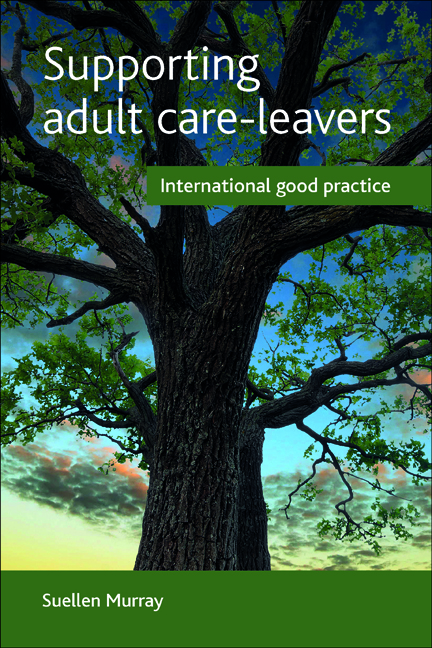Book contents
- Frontmatter
- Author biography
- Acknowledgements
- Contents
- List of abbreviations
- List of tables, figures and boxes
- One Introduction
- Two Care and its aftermath
- Three Public inquiries
- Four Apologies, memorials and other acknowledgements
- Five Reparation and redress
- Six Specialist support
- Seven Access to records and family reunification
- Eight Advocacy and consumer participation
- Nine Good practice in supporting adult care-leavers
- Notes and references
- Select bibliography
- Index
Five - Reparation and redress
Published online by Cambridge University Press: 01 September 2022
- Frontmatter
- Author biography
- Acknowledgements
- Contents
- List of abbreviations
- List of tables, figures and boxes
- One Introduction
- Two Care and its aftermath
- Three Public inquiries
- Four Apologies, memorials and other acknowledgements
- Five Reparation and redress
- Six Specialist support
- Seven Access to records and family reunification
- Eight Advocacy and consumer participation
- Nine Good practice in supporting adult care-leavers
- Notes and references
- Select bibliography
- Index
Summary
To provide ‘redress’ is to remedy or rectify a wrong. (Royal Commission into Institutional Responses to Child Sexual Abuse, 2013)
In Chapter Three, we found that public inquiries have consistently identified harms or ‘wrongs’ experienced in care. In Chapter Four, we considered acknowledgements of these harms and that a crucial aspect of an apology is reparation. Indeed, acknowledgement and apology are parts of reparation, or redress, and are means of remedying or rectifying harms, as explained by the Australian Royal Commission into Institutional Responses to Child Sexual Abuse in the opening quotation. In particular, ‘state redress responds to authorized wrongful acts of state’. Broadly speaking, redress is:
a remedy or compensation, and it can include financial compensation, provision of services, recognition and apologies and the like. It includes damages, or financial compensation, obtained through civil litigation, as well as schemes or processes established by governments or institutions to offer compensation, reparation and/or services.
This chapter considers the forms that reparation has taken, in particular, where financial compensation has been put in place. To differentiate ‘schemes or processes established by governments or institutions to offer compensation, reparation and/or services’ from the wider forms of reparation, I use the term ‘redress’ (programmes or schemes), and these are the focus of this chapter. As noted, reparation can be provided in other ways, such as through criminal injuries compensation or as a result of civil litigation. Here, I discuss redress where the state has made specific arrangements for the group or individuals affected. While reparation can occur in other ways, such as through the provision of universal specialist support services, they are discussed in the next chapter.
Some form of redress has been available in all countries under discussion in this book. However, the nature of redress varies, with some elements present in some countries and not others, and their availability not necessarily to all groups in each country. Redress schemes can include ex gratia payments, specific assistance to gain educational qualifications or vocational expertise, and counselling or other individual support. In this chapter, we first consider what redress entails and why it has been a contentious area. We then establish four key models and turn to an analysis of the various redress initiatives across the five countries. Finally, drawing on these examples, we consider what is good practice in the implementation of redress programmes.
- Type
- Chapter
- Information
- Supporting Adult Care-LeaversInternational Good Practice, pp. 87 - 110Publisher: Bristol University PressPrint publication year: 2015



